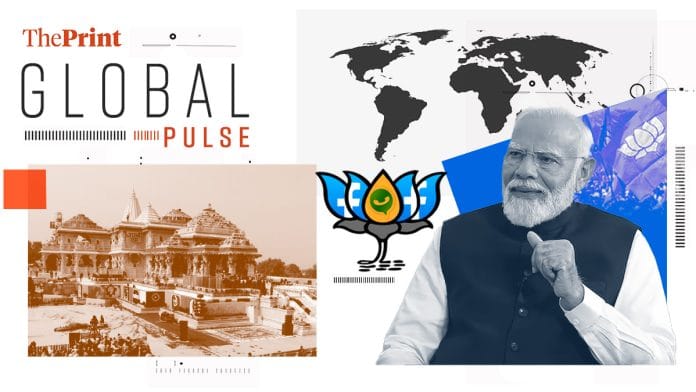New Delhi: Reporting from Lucknow, New York Times’s Sameer Yasir interviews Indian activists whom he calls “veterans of social causes”. Amid a crackdown on critics in Narendra Modi’s India, where more than three dozen human rights defenders, poets, journalists, and opposition politicians face charges, the likes of peace activist Roop Rekha Verma (80), former physics professor Vipin Kumar Tripathi (76), and New Delhi-based activist Shabnam Hashmi (66) distribute pamphlets, talk to people at tea stalls and women’s homes to spread their message.
Titled ‘Leaflet by Leaflet, a Few Aging Activists Fight India’s Tide of Bigotry’, the report notes that “such old-school outreach may seem quixotic in the digital age”, especially in the era of social media. “As Prime Minister Narendra Modi and his deputies have vilified the country’s minorities in a yearslong campaign that has escalated during the current national election, the small band of aging activists has built bridges and preached harmony between religious groups,” writes Yasir.
A report in the BBC titled ‘Lok Sabha 2024: Modi’s party volunteers targeting 100,000 people a day’ by Yogita Limaye, Shruti Menon and Jack Goodman, explores the BJP’s extensive social media strategy. With India as WhatsApp’s largest market, the platform is used for political messaging, it notes, adding that the BJP targets young users on WhatsApp and those over 40 on Facebook.
The party’s headquarters in Delhi sends out messages and hashtags praising Modi and criticising the Opposition to state-level teams. A BJP social media coordinator in Meerut, explained to the BBC, “I personally reach 10-15,000 people every day through 400-450 WhatsApp groups and 5,000 direct contacts.”
The report quotes Kiran Garimella, an assistant professor at Rutgers University who highlighted the strategy’s effectiveness, noting that it combines top-down coordination with grassroots participation in spreading narratives.
Also read: West’s ‘balancing act’ on India, diaspora divided over BJP mobilisation — global press
In a video report titled ‘India votes 2024: ‘A constant fear’ for Ayodhya’s Muslims’, France 24 interviews Muslim residents of Ayodhya, Uttar Pradesh.
The construction of a temple for the Hindu deity Ram on the contentious site that once housed the Babri Masjid — a mosque demolished by “Hindu zealots” in 1992, leading to riots that killed 2,000 people — has resurfaced old fears among the town’s Muslim population as elections approach.
Muslim residents recall past horrors, emphasising the ongoing anxiety. “There is fear, you don’t know what will happen when,” said Irfan Ahmed, a clothes seller.
Abdul Wahid Qureshi recounts how his house was burned down during the riots but notes, “We have good people who saved us”. While speaking about the emerging fear in this election, he tells France 24 that tensions rise during elections but “things go back to normal” once elections end.
The report quotes Sharad Sharma of the Vishva Hindu Parishad (VHP) who denies any involvement in the violence and asserts that India is for “all”. However, Hindus, being the majority, “should be respected”.
A Bloomberg report, titled ‘Four India Election Scenarios and What They Would Mean for Modi’ by Dan Strumpf, outlines the “wide range of possible election outcomes (that await) India’s next prime minister’. From status quo and a ruling party setback, to a BJP wipeout, and the aftermath of such setbacks — each scenario presents distinct implications for the next prime minister and the new government.
Narendra Modi’s pursuit of a third term faces varying outcomes, ranging from a desired landslide victory for the BJP, potentially catalysing significant reforms, to a more moderate win maintaining the current state of affairs. Conversely, a setback for the ruling party might necessitate a coalition government, reflecting India’s societal diversity and potentially yielding substantial economic and diplomatic achievements, notes Strumpf.
Arrests in Hong Kong & South Africa’s pivotal elections
Six people in Hong Kong have been arrested under the new national security law for seditious social media posts. The controversial law which expands on the Chinese law imposed in 2020 was passed by Hong Kong lawmakers earlier this year. To know more, read the BBC report.
In a watershed election, South Africa goes to polls today with predictions suggesting that for the first time in its history, it may witness a coalition government due to the absence of a single-party majority. To understand the key factors and issues influencing the elections read Al Jazeera’s report.
(Edited by Zinnia Ray Chaudhuri)
Also read: Why Modi is ‘rattled’, YouTubers taking on Indian PM & ‘blistering summer’ — global media coverage






